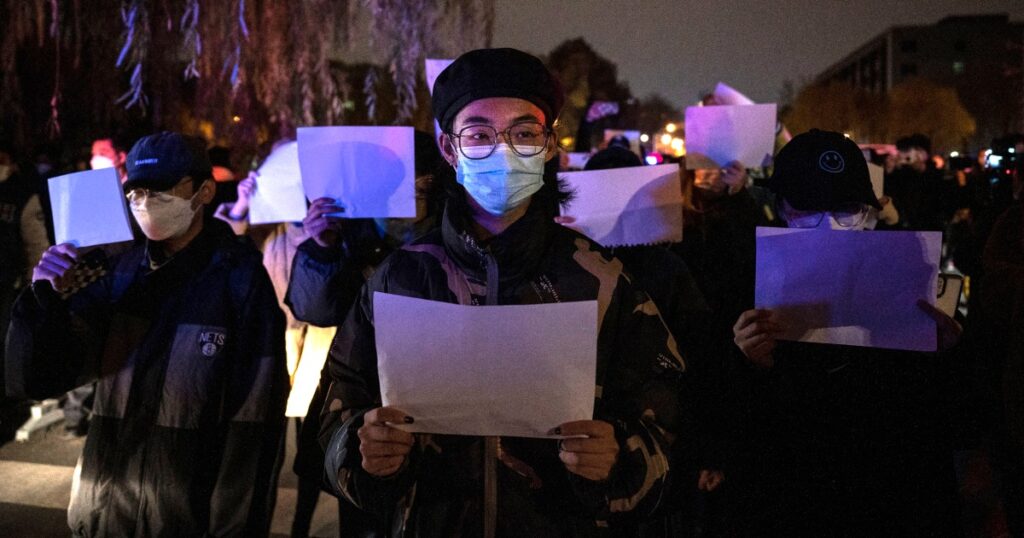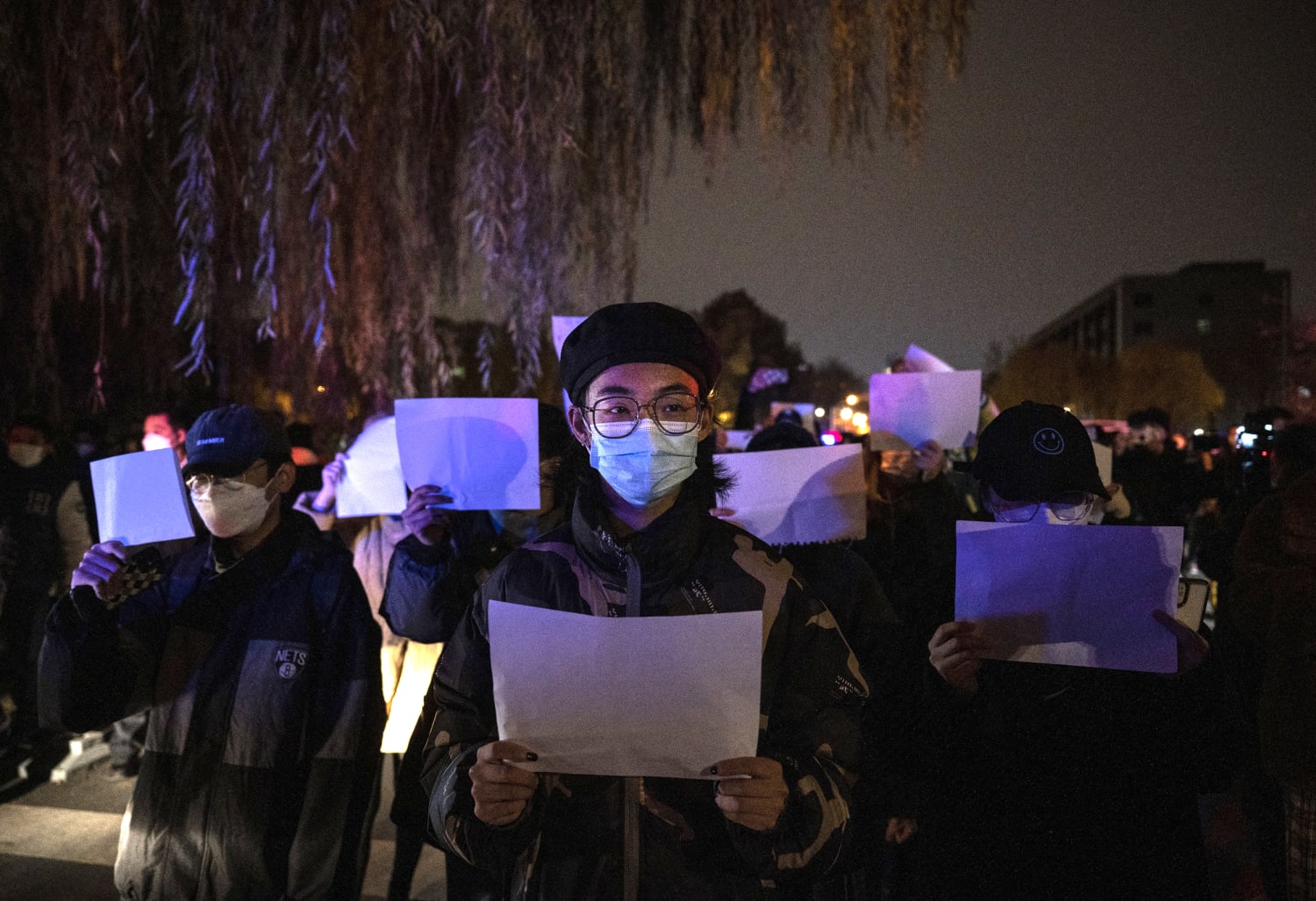

Widespread protests against the Chinese government’s “zero-Covid” restrictions may have rocked the country over the weekend, but data shows that anger has been building for months.
A deadly fire in the western Xinjiang region spurred the most recent demonstrations, a tragedy protesters say was made worse by the restrictions. Data from Freedom House, a Washington, D.C., nonprofit that tracks political freedom, shows that nearly two-thirds of China’s 34 regions have had at least one zero-Covid demonstration this year.
Protests also flared up in June — right after the financial hub of Shanghai completed a grueling two-month lockdown — and in September and October.
China’s zero-Covid strategy aims to isolate individual cases and cut off transmission chains through a combination of quarantine, contact tracing, mass testing and strict lockdowns. This strategy makes it an outlier among the world’s major economies. According to an Oxford University government response tracker, China’s lockdowns have remained at early-pandemic levels, while the U.S. and remaining Group of 7 nations have relaxed their measures.
The Chinese government says its tough Covid measures have saved lives, pointing to an official death toll of 5,233 as of Nov. 28, compared to more than 1 million in the United States. China’s population-adjusted death rate is far lower than those of the G-7 nations.
The lockdowns are having a major impact on the Chinese economy, the world’s second largest after the United States. Data from the Chinese National Bureau of Statistics shows that retail sales fell sharply in April and May after the Shanghai lockdown and declined again in October.

 Latest Breaking News Online News Portal
Latest Breaking News Online News Portal




